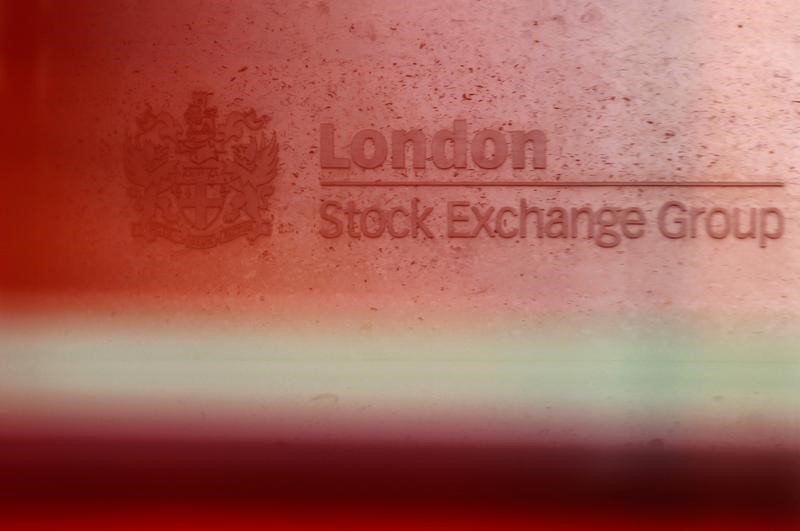By Atul Prakash
LONDON (Reuters) - Britain's FTSE 100 share index dropped to a five-month low on Thursday, with some stocks trading without the entitlement to their latest dividend payment, although the blue-chip index broadly recovered by midday as miners extended early gains.
Shares in Severn Trent, 3i Group and Land Securities fell 1.3 to 3.9 percent as they traded ex-dividend.
However, the UK mining index surged 2.5 percent, the biggest sectoral gainer, after copper climbed on upbeat Chinese data and a weaker dollar and gold surged after the Federal Reserve indicated on Wednesday that U.S. rates may rise more slowly than expected.
"A rally in metals prices on the back of a softer dollar has helped the FTSE 100 to recover from earlier lows. The index is technically 'oversold' and a bounce back is due," Securequity trader Jawaid Afsar said.
Shares in Anglo American (LONDON:AAL), Fresnillo (LONDON:FRES), Randgold Resources (LONDON:RRS), Rio Tinto (LONDON:RIO) and BHP Billiton (LONDON:BLT) rose 1.7 to 3.2 percent.
The FTSE 100 index was down 0.18 percent at 6,668.74 points by 1147 GMT after falling to a low of 6,625.16, the lowest since late January. However, it outperformed the mid-cap FTSE 250, which fell 0.5 percent after it was hit by a raft of disappointing corporate updates.
Poundland fell 2.9 percent after the discount retailer said first-quarter growth had slowed and first-half trading would be subdued.
Premier Farnell (LONDON:PFL), a distributor of small electronics and electronic parts, dropped 5.9 percent after saying first-half adjusted operating profit would be marginally below last year as it works to implement a new global structure.
While online gaming company Playtech said trading was strong, it fell 1.5 percent after saying it would raise 250 million pounds ($396.50 million) through a share placing.
Concerns over the Greek debt crisis have hit shares, although the FTSE 100 outperformed major euro zone indexes such as Germany's DAX and France's CAC, both down 0.7 percent.

The FTSE 100 is up just about 2 percent year to date as it has not felt the full benefit of monetary easing in the euro zone and has been hindered by a heavy weighting in commodity stocks as prices have come under pressure. In contrast, the pan-European FTSEurofirst 300 has gained 10 percent.